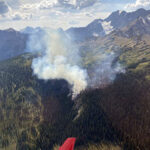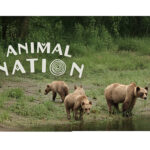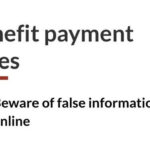Home »

Alberta is doing a good job managing grizzly bears
By Mark Hall
Op-Ed Commentary
Alberta has a science-based grizzly bear recovery strategy and conflict response plan. The conflict response plan emphasizes mitigation and prevention. This plan has a series of response matrices that guide wildlife officials on what to do with bears with a pattern of escalating conflict history or offensive behavior towards people.
The matrices include aspects of grizzly bear biology that are linked to their conservation. So, even in deciding what to do with conflict bears, there’s still an emphasis on recovering grizzly populations. There’s a realistic blend of conservation, public safety and livelihood protection in Alberta.
But there’s a whole bunch of controversy about this. Nothing fundamental to grizzly bear conservation has really changed. In fact, even with the level of incidental and accidental human-caused mortality the grizzly population is trending upwards. The only thing that’s changed is an amendment to the Wildlife Regulation allowing wildlife officials the option to use resident hunters to assist in cases where a grizzly bear is identified for lethal removal. That’s it.
It’s really that simple. The government is still fulfilling the grizzly bear recovery strategy and it’s getting close to the recovery target. The claims that suggest hunters aren’t qualified to kill grizzly bears, that the recent change to the regulation is not science-based, or that hunting doesn’t reduce conflict are all red-herrings.
I’ve also seen false, misleading, slanderous and egregious statements about the regulation change including calling Alberta hunters “mini cartel of hitman hunters.” “bear vigilantes” and that the change is “a direct move by the minister alone to quietly give his friends, business associates, and fellow trophy hunters an opportunity to legally kill a grizzly.”
The folks saying these things are not coming across as conservationists, wildlife experts or pro-grizzly bear conservation. They come across as needing to unleash rage against an identifiable minority group, which are hunters in this case. These folks know that they’re not going to get canceled for saying these things. I suspect that gives them a sense of power or moral superiority.
Some are claiming that the province has changed the hunting regulations to re-open grizzly hunting. That is false. Critics have made unsubstantiated accusations that the amendment is a “backdoor hunt.” That is false too.
Hunting is an outdoor activity governed by Alberta’s hunting regulations. Hunting regulations use science to establish dates for hunting seasons, bag limits and criteria for which animals can be harvested. Hunters have freedom within the hunting regulations to choose how they want to hunt. Euthanasia, whether for conflict, sick or injured wildlife is not a regulated hunting activity nor is it hunting. Those who are trying to paint the grizzly bear conflict management program as a back door hunt are simply spreading false information.
A recent study reported on the frustration and disenfranchisement that rural people felt over not being included in the development of grizzly bear management plans and policies in Alberta. The Alberta government is now making changes to include citizens directly in grizzly bear management. This is a positive collaborative step forward for people and grizzly conservation.
There is global trend at play here. When people living with dangerous wildlife are not included in wildlife management the outcomes for people and wildlife are generally not good. Canada is no exception. So, when you hear people saying the government’s recent decision is not science based that too, is false.
So, all this fervor is simply just a tactic of confusing the public so that they don’t know what the real issue is or whether there’s really an issue at all. There are people that simply want to punish hunters for anything and everything they do including volunteering for the government-led wildlife conflict response program.
Most citizens are likely in the middle on any hunting debate. They’re not against hunting. They’re not for hunting. It’s just not their thing. But they do deserve clarity on what the issue is so they can weigh the evidence and decide for themselves what their positions are.
British Columbia has an estimated 16,000 grizzly bears which is way more than in Alberta. B.C. also has a few sub-populations on the verge of extirpation. Alberta’s system of managing grizzly bears is better than B.C.’s where government-led grizzly science was eliminated after hunting was closed and where there are no recovery plans for dwindling sub-populations.
Alberta, I think you’re doing a good job of grizzly bear recovery, conflict management and respecting people in the process of managing grizzly bears.
e-KNOW file photo
Cranbrook resident Mark Hall is the Director of the Blood Origins Canada Foundation and the host of the award-winning Hunter Conservationist Podcast. Our mission is to convey the truth about hunting in Canada.







